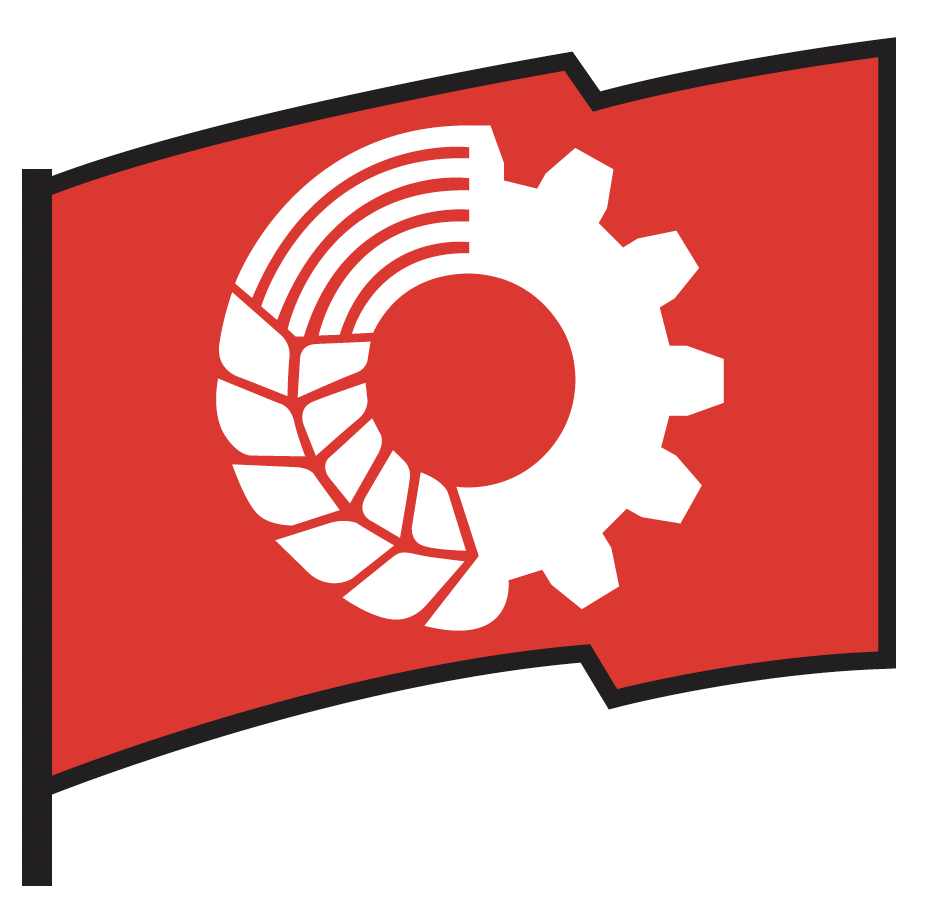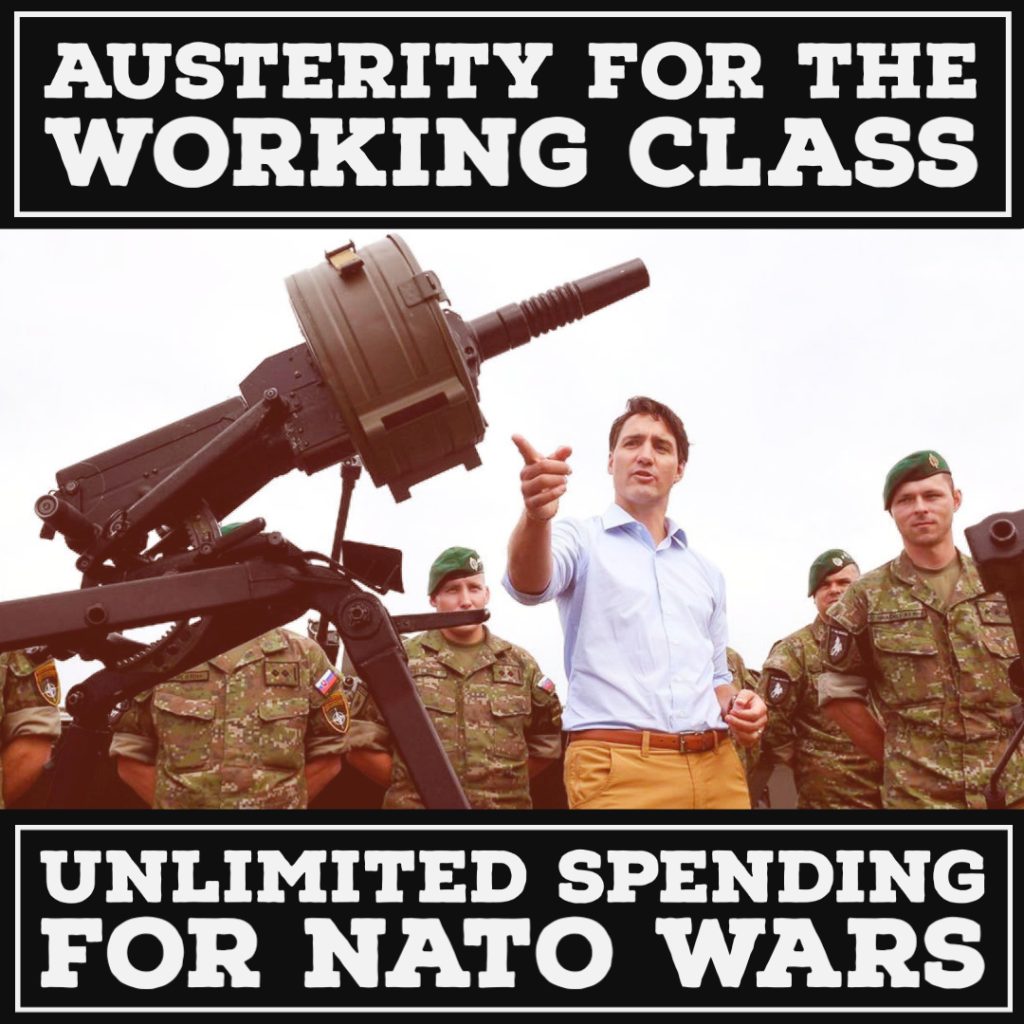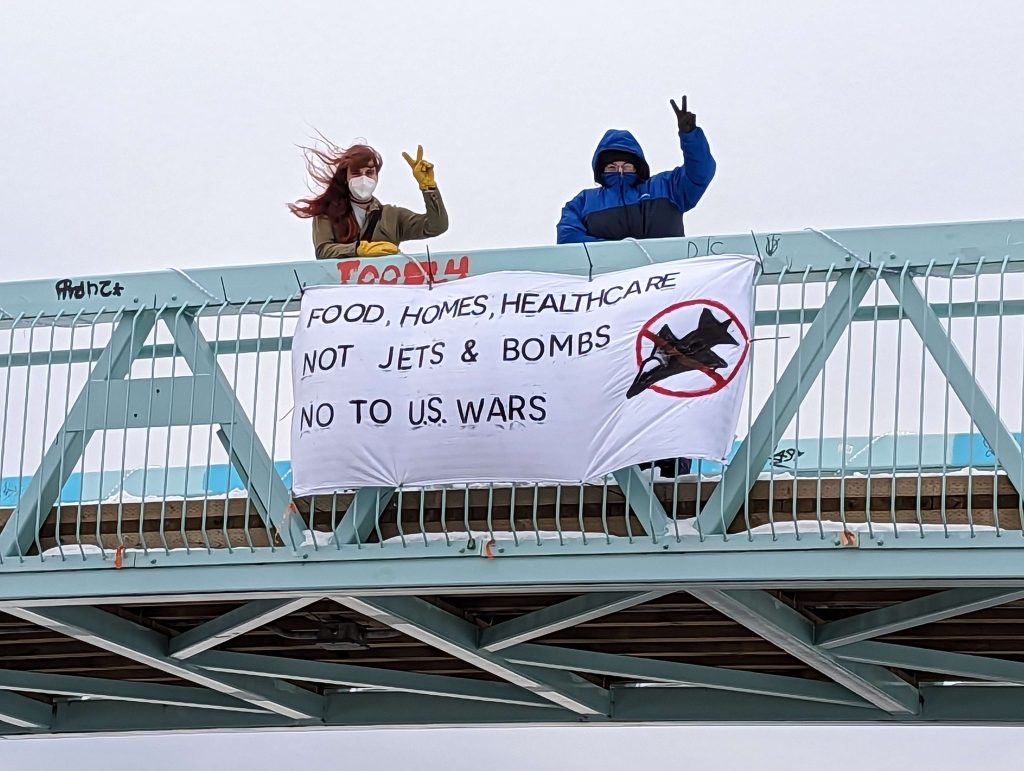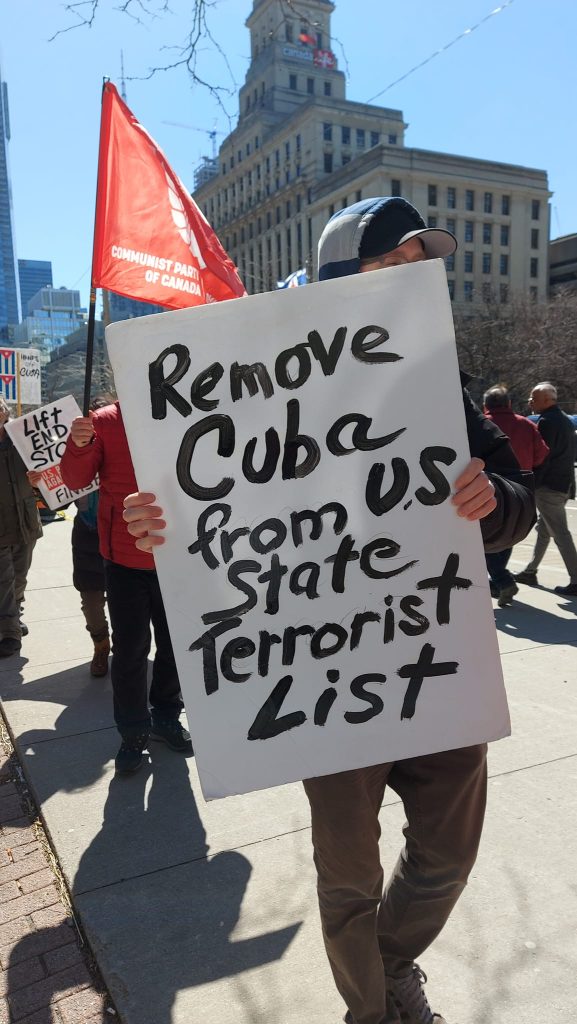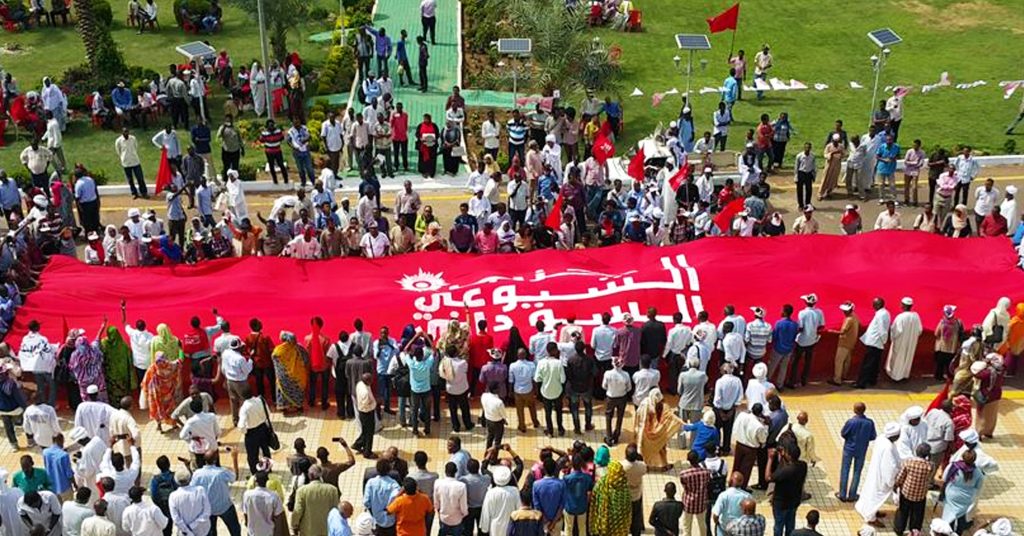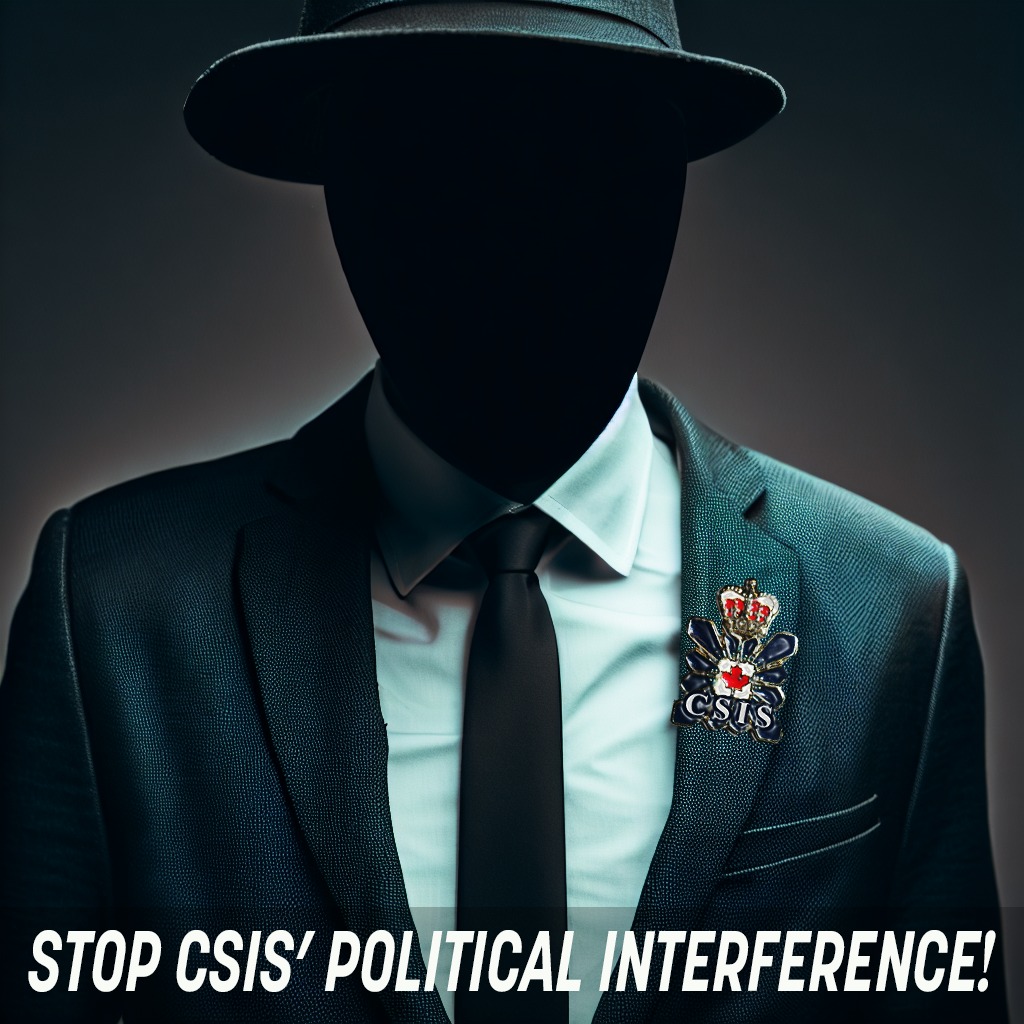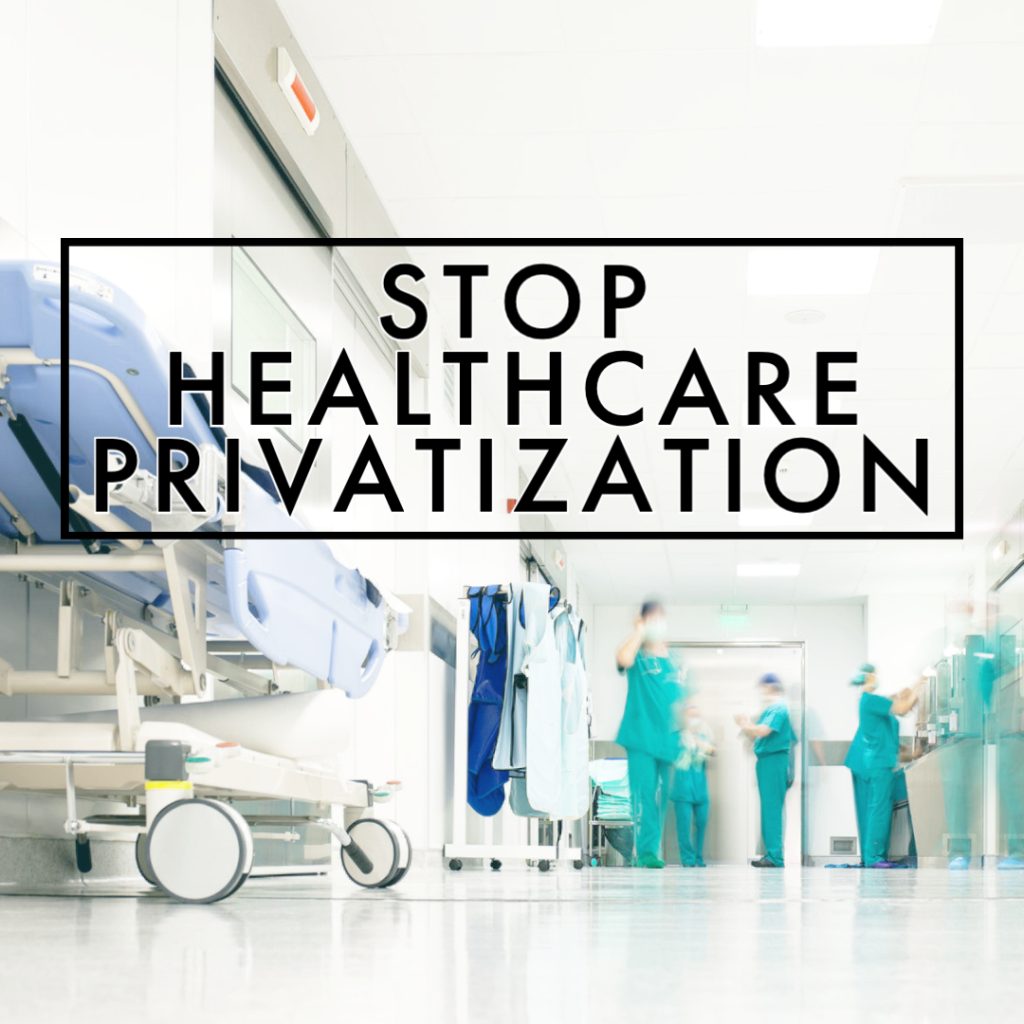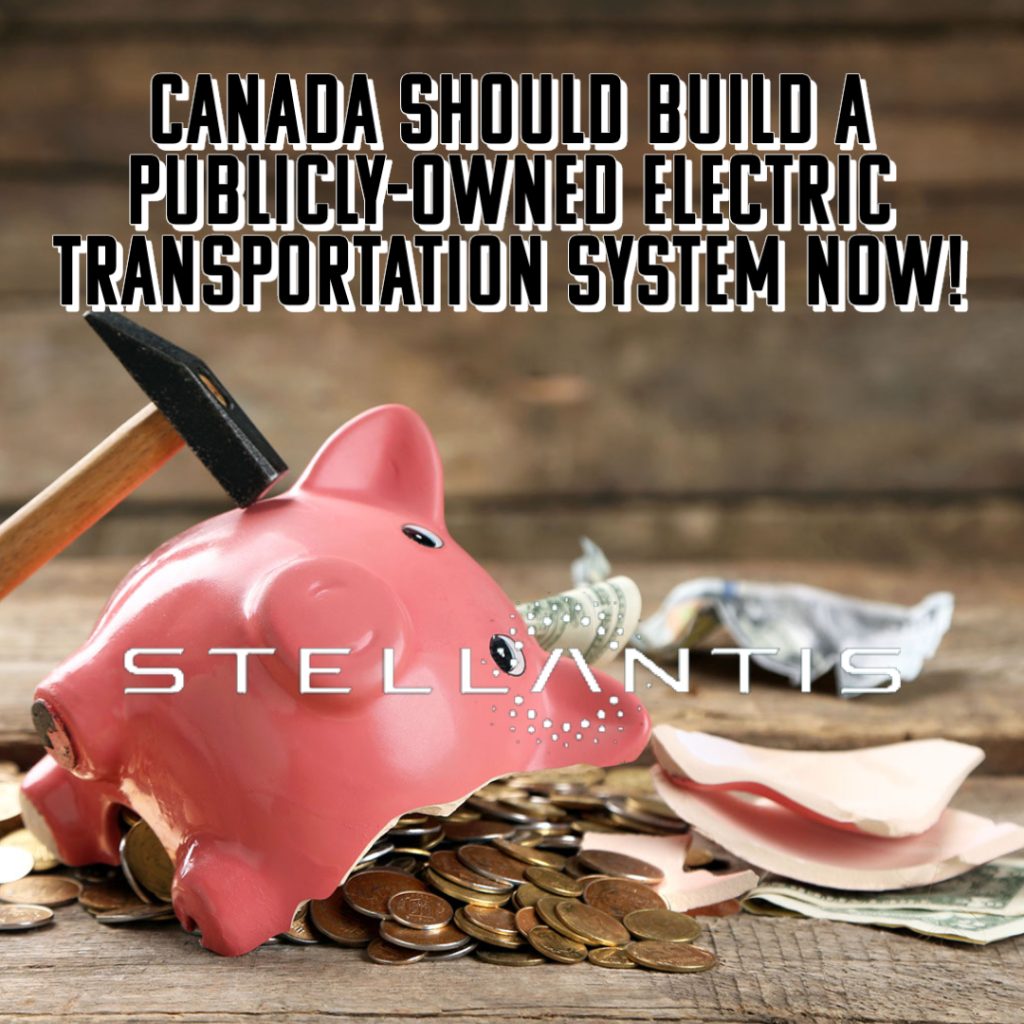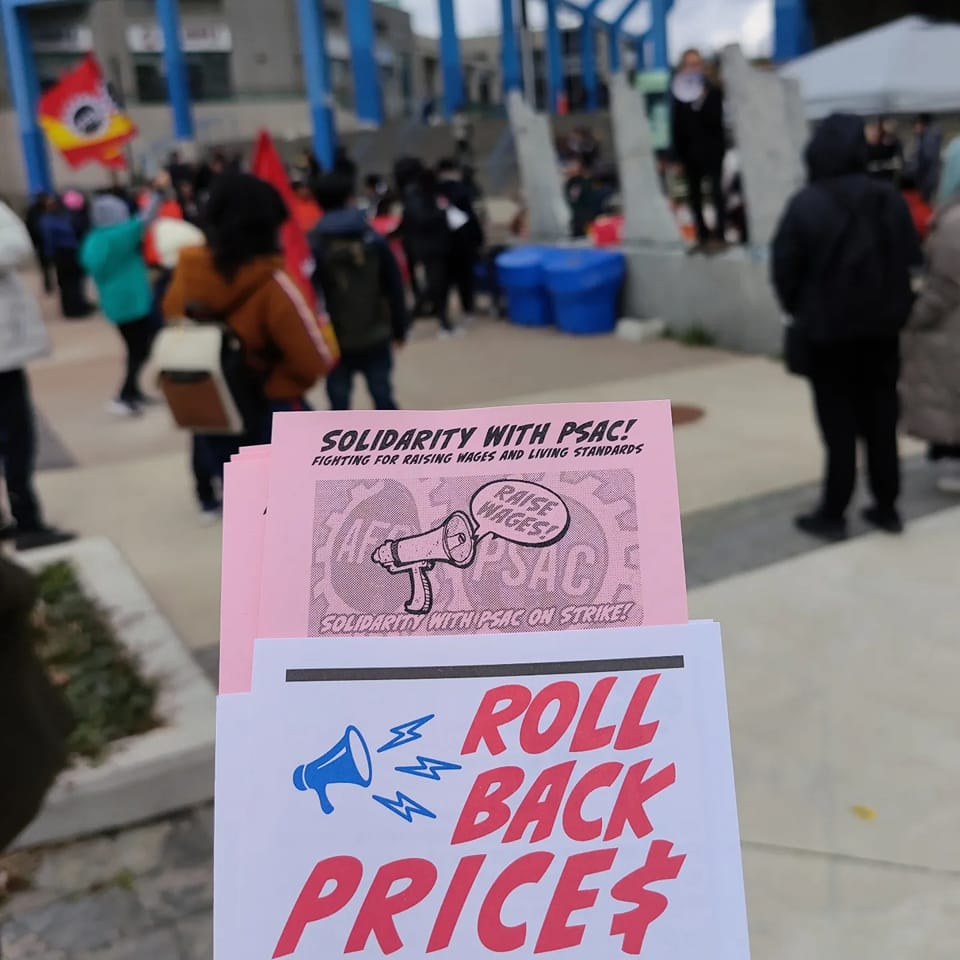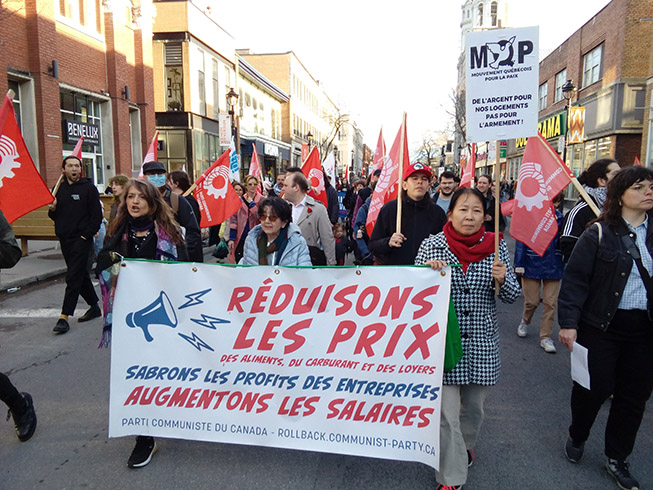Report of the Central Commitee, Communist Party of Canada, June 17-18, 2023
International Situation: War
The danger of global war continues to grow larger as imperialism escalates its provocations against China, DPRK, and Cuba, and fuels the expansion of the war in Ukraine with massive exports of munitions and military hardware including tanks from Germany , Canada, the US and 11 other NATO countries; drones, and F-16 fighter jets promised for short order delivery from the US. These weapons are being used in the current Ukrainian offensive against Russia which NATO proposes should be accelerated with foreign troops joining Ukrainians on the battlefield. This would expand the war to other European countries with all the consequences that would entail.
NATO has continued its campaign to complete the encirclement of Russia with Finland joining NATO in April, more than doubling the length of NATO’s border with Russia. Sweden is also about to join, while Ukraine continues to demand admission. In response, Russia has moved some of its nuclear weapons to Belarus, while DPRK has escalated its missile tests in response to mock attacks by the US, Japan, and South Korea. There is no end in sight for this NATO proxy war against Russia, that will destroy Ukraine, because NATO intends to completely encircle both Russia and China in its drive to restore imperialism’s power and domination over these countries, their resources and their markets. This was confirmed by US Secretary of State Antony Blinken in a June 2 speech in Finland where he rejected calls from Russia and China for a ceasefire and peace talks, saying Russia must pay for Ukraine’s reconstruction and be held accountable for its invasion. Meanwhile the US is readying to arm Ukraine with a fleet of new fighter planes, while the May G7 meeting in Hiroshima imposed new sanctions against Russia, and declared its intent to “monitor and respond to DPRK’s “weapons of mass destruction programs”.
China
The US and its allies have stepped up their provocations against China, with US warships and warplanes continually breeching Chinese airspace and the oceans of the South and East China Seas in the territories of China, Vietnam and DPRK, among others. These incursions are not the ‘freedom of navigation patrols’ that the US claims, but deliberate acts of war which Admiral John Aquilino, Commander of the US’ Indo-Pacific Command made clear in June. “For the United States, it’s the synchronization of integrated efforts of the entire joint force under sea, on the sea, above the sea, in space and cyberspace. (… It’s) the full Monty,” he said adding that would be the US response to any effort by China to defend its sovereignty over Taiwan. These statements were backed up by US Defence Secretary Lloyd Austin who said the US would not flinch and would continue sailing through and flying over the Taiwan Strait and the South China Sea, despite China’s objections that the US was abusing “freedom of navigation, that innocent passage, to exercise hegemony of navigation.” In June, a US guided-missile destroyer and a Canadian frigate were intercepted by a Chinese warship in the Taiwan Strait separating Taiwan from mainland China. These provocative acts by the US and Canada are a tinderbox waiting to ignite. And they fly in the face of the one-China policy recognized by the United Nations in 1971, and reiterated in August 2022.
In response, representatives of the ASEAN countries have condemned the AUKUS agreement as the start of a new conventional and nuclear arms race in the region, which ignores the fact that the ASEAN region is a nuclear weapons free zone.
In November, Canada unveiled its new Indo-Pacific Policy, the essence of which is to flex Canada’s military and political muscle in the region, in the service of US imperialism, with particular focus on China. It includes strengthening relations with Japan, South Korea and India, (the Quad), the same countries involved in the military provocations against DPRK, as well as with the Five Eyes (US, UK, Australia, New Zealand, Canada). This new policy also includes interference in Taiwan, in the Xinjiang Uighur Autonomous Region, in the attacks on China here at home asserting Chinese interference in Canadian elections, Chinese “police stations” in Canada, and in the unfolding attacks on Chinese Canadians concerning their loyalty to Canada. This policy is part of imperialism’s economic, political, ideological and military war on China in the world, and in the region. It’s also a huge source of profits for the military industrial complex in Canada
Global Developments & Challenges
Dramatic and highly significant changes have taken place in international relations since our Central Committee last met. Much more analysis and discussion on the part of this committee – and within the international Communist movement as a whole – will be required to more fully and comprehensively understand these breathtaking shifts and realignments in the realm of global geopolitics, and how they will impact on the struggle for peace, for the defeat of imperialist domination, and for the victory of socialism, both in our own country and internationally.
The seismic changes we are currently witnessing take place in the context of the continuing and accelerating crisis and decay of global capitalism as a whole, a process that has been developing over many decades.
The defeat and overturning of socialism in the former Soviet Union and in Eastern Europe in the early 1990s shifted the world balance of forces in favour of capitalism, and in particular elevated U.S. imperialism to the status of unrivalled global dominance within the global capitalist order. Nothing stands still however, and the world today looks very different today than three decades ago.
The relative decline in the power and influence of U.S. imperialism, and that of European and Japanese imperialism as well, has gained pace in recent years, setting off alarm bells in monopoly circles and in the corridors of power of the leading capitalist states. Frantic efforts to stem and reverse this decline – through the use of economic coercion and military aggression – have, at best, only temporarily slowed this process, but have failed to change its trajectory.
This complex process is reflected in divergent and even contradictory developments. On one hand, the United States (the dominant imperialist power) has used the conflict in Ukraine to consolidate its hegemonic control of NATO and further extend its reach into Africa, Latin America and the Asia-Pacific regions. It has increased the use of unilateral coercive measures against other countries, especially in the Global South. And it has hobbled together a number of other strategic-military alliances (e.g. AUKUS, the Quad), launched a new cold war against China and the Russian Federation, and also targeting other states that it considers as threats to its continued domination. In its desperate efforts to shore up its flagging power, it is even prepared to bring the world to the precipice of nuclear war.
On the other hand, more and more countries are manoeuvring to extricate themselves from the reach of Washington’s control, or at least lessen its influence over their fates. The strategic partnership between China, Russia, and the Central Asian republics; the growing influence of the Shanghai Cooperation Organization (SCO); the resurgence of CERLAC in Latin America, the changing balance of forces in West Asia (“Middle East”), the substantial increase in countries applying to join the BRICS; and moves by a number of states to conduct international trade avoiding the U.S. dollar as a reserve currency: these are just some developments which reflect the weakening of U.S. hegemony.
The degree to which these latter developments act as a sort of counterweight, “staying the hand” of imperialist aggression and averting new wars, they are to be welcomed. We should not be under any illusions however that this is a foregone conclusion. Things could also spiral in a downward, militarist direction as well. This makes the strengthening of the peace movement – both in Canada and internationally – more complicated but also more urgent than ever.
Multi-polarity
In some quarters on the ‘left’, these developments (i.e., the emergence of “multipolarity”, “de-dollarization”, etc.) are being uncritically championed as positive. Indeed, the erosion of the U.S. financial monopoly, based on the dollar as a world reserve currency, will make economic sanctions imposed by the U.S. and its imperialist allies less effective. But the rise of a “multipolar world” could also have negative consequences as well.
In any case, we should never lose sight of the fact that, as Communists, we fight for neither a “unipolar” nor “multipolar” world, but rather for a new world based on full equality, sovereignty and independence of all nations and states, on mutual respect, on peace and disarmament, and on cooperative efforts to solve humanity’s most pressing social and environmental problems and challenges. We fight against imperialist aggression, war and plunder wherever it raises its ugly head. We fight for socialism!
Cuba
The US has also tightened the blockade and sanctions on Cuba, making it increasingly difficult for Cuba to maintain or expand trade relations with the vast majority of countries that also trade with the US. The US extra-territorial laws have created extreme shortages of essentials including food, fuel, medical supplies and more, and have fueled the recent exodus of Cuban patriots who support their government but are leaving to escape the punishing sanctions and blockade. The US laws are intended to tighten the screws on the Cuban economy in an effort to turn the Cuban people against their government and against socialism. But they have under-estimated the resilience and courage of the Cuban people and their determination to defend their sovereignty and socialism. Cuba has received large shipments of goods including food and fuel from Russia, China, and Mexico, among others willing to defy US diktat.
The US elections in 2024 will undoubtedly put pressure on Canada’s governing parties to bring Canada’s policy on Cuba in line with US policy. A Wall Street Journal ‘story’ in early June citing intelligence services as its source, claimed that “China has been operating a spy base in Cuba since at least 2019” and that “China and Cuba had reached an agreement in principle worth billions to build an electronic eavesdropping station on the island.” This is the kind of bald-faced lie that the CBC’s Even Dyer regularly writes to spread disinformation and to build political and public opposition to tourism, trade and cultural and educational exchanges with Cuba. This upsurge in attacks on Cuba shows how urgent it is to build broad public support for Cuba, and for friendship and solidarity with Cuba. This is urgent.
Palestine
In the Middle East, Israel’s escalating war on Palestinian civilians and neighbourhoods in the occupied territories as well as within Israel, has further exposed the genocidal policies and objectives of the Zionist government, and its US ally and regional supporters. Mass forced evictions and displacement of Palestinians living in East Jerusalem this spring are part of Israel’s annexation and ethnic cleansing of Jerusalem and the West Bank, and constitute a prima facie war crime according to UN Human Rights Rapporteurs. The Israeli military continue to shoot unarmed Palestinians, including 27 children so far in 2023. – the most recent being a 2 year old shot in the head June 1. The Canadian government continues to ignore these war crimes by Israel against the Palestinian people and to support the far-right Netanyahu government, while ratcheting up its attacks on pro-Palestinian organizations and the BDS movement in Canada.
Sudan
In Sudan, the working class and democratic forces, within which the Sudanese Communist Party plays a leading role, are in the grips of a war being fought out in the streets of Khartoum between the army backed by the European Union, and the militias, for control over the resources and the wealth of Sudan. The military-civilian coalition government which was formed after the previous military government was overthrown, fell after the military attacked its democratic coalition partners, and was then itself attacked by marauding militias who see the country as a prize. Hundreds of Communists, workers and democrats have been murdered, tortured and jailed, while the offices of the Sudanese Communist Party was occupied in late May by the “Rapid Support Forces”, its contents trashed, then turned into a militia headquarters . The Sudanese people, led by the Party continue their struggle to survive the death, destruction and terror around them and to regain control of their country.
We are working with our Sudanese comrades to build up pressure – including on the Canadian government – to end the war in Khartoum, for the formation of a civilian government, the dissolution of the militias, and to bring to justice all those responsible for the carnage and the terror. We stand in solidarity with our Sudanese comrades in their struggle for democracy and socialism in Sudan at this very difficult time.
Venezuela
We also stand in solidarity with our comrades in the Communist Party of Venezuela, who are under sharp attack by the PSUV government led by Nicolas Maduro. Ever since the 1999 election victory of Maduro’s predecessor, Hugo Chavez and the launching of the “Bolivarian Revolution”, US imperialism has undertaken a relentless campaign to defeat the PSUV government. Part of Washington’s subversive strategy has been to undermine the growing influence of the PCV among working people in Venezuela, and to weaken its links with the PSUV government. Domestic capital in Venezuela has also tried to split the alliance among the PSUV PCV and other left and anti-imperialist forces in the country. Recent concessions and retreats of the Maduro government have now made political cooperation and unity between the PCV and PSUV virtually impossible.
The Canadian government has played an especially ugly role in an effort to bring about a coup d’état and impose the puppet Juan Guido as the new President. When the coup failed, the US and Canada shifted their efforts to ‘seducing’ the PSUV government to abandon many of the stated goals of the Bolivarian revolution, and to instead embrace a new, mutually beneficial relationship with imperialism in which the PSUV would become an acceptable ‘partner’. This would include unprincipled concessions to corporate and imperialist interests, yielding ownership and control over Venezuela’s resources and economy, and disciplining the working class and working people generally by domestic and international capital. Implementation of this plan led to political and physical attacks on trade union and peasant leaders, and on the PCV and its leaders and cadres. Recently the PSUV leadership moved to effectively ban the PCV altogether, and to construct a sham ‘grassroots PCV’ to take its place. These developments have shocked progressive people in Venezuela and around the world, and have evoked sharp condemnation from Communist and Workers parties globally. The attacks on the PCV, and the concessions made to Venezuelan capital threaten to neutralize the broad unity and support for the PSUV government that were the cornerstone of international solidarity.
We stand with the Communist Party and the working people of Venezuela who are struggling to restore the revolutionary process in their country, which has stalled as a result of the PSUV’s capitulation to Venezuela’s capitalists, and its threats to make the Communist Party of Venezuela illegal. Imperialism must not be allowed to re-take control of Venezuela, and the Canadian government must end all interference in Venezuela and in the Caribbean and Latin America now.
For Peace and Disarmament
In the current very dangerous situation, it would be reasonable to expect a large and growing anti-war movement around the globe. But this isn’t the reality today. In fact the drive to war is the predominant ideology in most of the advanced capitalist countries, including Canada. While the peace and anti-war movements are stronger in some countries than others, the mainstream view is that the road to peace is through war, and Ukraine is the example. The offer of a ceasefire and negotiations leading to a political solution suggest compromise, not victory, and compromise is defeat according to the dominant ideology.
Further, Russia’s invasion of Ukraine contributes to the storyline that Russia is the aggressor, and Ukraine is the victim. Truth is complicated, and confusing. this war is not suited to black and white / good and bad conclusions which makes it difficult – and complicated to see a way out. Easy to grasp explanations, larded with morality, suit the warmongers very well, but are very dangerous for those seeking lasting peace and justice. Casting Russia as the victim is also easy, but not the whole truth or even the main issue.
Further, the public is doused in issues to worry about, including the environmental crisis, the pandemic, global economic crisis, falling wages and living standards, mass unemployment, etc. The war is far away, while these issues are on our doorstep.
Linking the fight for peace and disarmament to the fight for environmental security and to the fight against future global pandemics links the future security of each country to the security of all countries and to the health and well-being of the planet and its inhabitants. This is the issue of human activity and the consequences of the unbridled exploitation of nature, and of human beings.
Further, the cost of war and military spending is directly related to social spending cuts to healthcare, education, childcare, the environment, public investment in job creation, higher wages and living standards, social housing, etc.
Our efforts to link these issues is important to put them back into the hands of the working people and the public to demand peace, disarmament, climate justice and greatly expanded social spending. These are not problems that are impossible to resolve. They must be resolved, for our collective survival; but they can only be resolved at the expense of profits, and that is the challenge. While it’s not possible to finally solve these problems under capitalism, it is essential to build opposition to unbridled capitalist exploitation of nature in order to survive capitalism, and to wage a successful struggle for socialism. The clock is ticking, and we cannot wait for socialism to act. Here in Canada we can see the pressure to address the issues of the environment and health is growing exponentially, and has the potential to become a force for fundamental change. So must the fight for peace and disarmament.
The issues of peace and disarmament, and the environment, are not only about survival, but also the quality of life. If billions of dollars are spent on war and war production, this comes at the expense of socially necessary spending on people’s needs, on universal healthcare and on the environment. This is also how the trade union movement can be moved to take up these issues.
Global Recession
The advanced capitalist countries around the world are preparing for a global recession, touched off by inflation, and made worse by the response of these governments which is to fight inflation by cutting wages and employment while corporate profits surge. The purpose of these fiscal policies is to download the costs of pandemic deficits onto the working class, and to discipline the working class with job cuts and cuts to real wages and incomes. This drive to neoliberalism is a deliberate policy in other words, adopted and applied across the capitalist world.
The coming recession arrives on the heels of the recession in 2020, and the pandemic and the mass layoffs, impoverishment, sickness and death faced by hundreds of millions of workers around the globe. It also arrives on the heels of massive accumulations of profits and wealth by the biggest national and global monopolies, and a massive restructuring of work and the workplace that took place under cover of the pandemic. Part-time and remote work have replaced full-time, unionized jobs in many sectors, while privatization of public services and social programs is proceeding rapidly. The gains of decades are being eliminated, but not without a massive struggle by workers and the public to block these actions by right-wing governments and their corporate backers.
In France, workers are involved in a mass struggle to stop the Macron government from increasing the pension age from 62 to 64, and eliminating other gains won in past labour and social struggles. In the UK, workers are fighting big increases in the cost of living, and privatization of public services and publicly owned corporations. In Greece, workers are fighting cost-of-living increases, privatization, labour “reforms”, and the war in Ukraine. In Germany, workers are engaged in similar struggles, in addition to the growth of far-right and fascist parties such as the AfD which has elected 92 deputies in the German Bundestag, and others to the local government. Fascist parties have been elected to Parliaments and local governments across Europe. This is capital’s answer to workers’ demands, and it is not limited to Germany or to Europe.
US Politics and Economics
In the US, the economic crisis and its impact on workers is made worse by the growth of far-right and fascist movements linked to the Republican Party, and the candidates vying for the Republican nomination in next year’s Presidential election. There are no moderates in the Republican Party, and they pose a serious threat to labour, women, Black and Indigenous Peoples, immigrants, the 2s/LGBTiQ communities, and minorities in general. There is a real and growing danger that the Republicans, who already control the House of Representatives, could win the Presidency, and while there are no differences between the Democrats Republicans on foreign policy, there are differences on domestic issues including equality rights, 2s/LGBTiQ rights, reproductive rights, and voting rights.
The Political Situation in Canada
US right-wing populism and neo-fascism is leaking into Canada at a growing rate, bolstering the far-right and fascist organizations that are home-grown and have been active in Canada for decades. First exposed during the 2022 “Freedom Convoy”, as an active organizer and financier of Canada’s far right, this US movement also has close ties to the right-wing evangelical movement in Canada, to news outlets like Rebel Media and True North, and to prominent members of the Conservative Party and the People’s Party of Canada. The attack on equality rights of women, Black, Indigenous, and 2s/LGBTiQ rights is a key feature of this far-right movement which is most visible in the current attack on Pride events and trans education in schools and Drag Storytime in public schools and libraries. We stand with the 2s/LGBTiQ community in condemning these attacks, and call on public institutions to also reject these attacks. We also call for secular public school systems across the country, free of religious and reactionary bias.
In June, New Brunswick Tory Premier Blaine Higgs introduced revisions to Policy 713 which require teachers to inform parents if their children change their pronoun or their name while at school. This is a direct pitch to mobilize the right and reaction in the province in a possible snap election that Higgs has suggested he’s ready to call on the issue of ‘parental rights’. In fact, the ‘parental rights’ in this case mean the right to beat, threaten, abuse and harm children who are non-binary or trans. The revisions are in line with similar anti-2s/LGBTiQ legislation in the US, and have led to widespread opposition in Canada.
The Higgs government is pinning its re-election hopes on mobilizing a very far-right, populist movement by cynically attacking the rights and security of vulnerable children and families.
But this is the same pattern that Higgs adopted when attacking the linguistic rights of New Brunswick Acadian people who constitute one-third of New Brunswick’s population. Claiming that French language schools threatened the quality of English language education and the rights of English-speakers in the province, Higgs’ attack led to a sharp struggle that eventually forced his government to back off its ugly and divisive attack.
Across the country, reactionary provincial governments are working hand in glove with the federal Tories to undermine labour and democratic rights, to shift politics farther to the right, and to implement reactionary economic and social policies, such as those being implemented by the Higgs government in NB. This includes the attack on reproductive rights, and the right to abortion which is not accessible to women in Atlantic Canada, and in many other parts of the country, outside the big cities.
We recognize the current efforts to consolidate the forces of reaction in the Conservative Party, and its very dangerous objectives and consequences which can be summed up as anti-working class, anti-labour, anti-communist, anti-democratic, anti-people.
Tory leader Pierre Poilievre and his caucus have adopted right-wing populism and an attack dog leadership style intended to suggest that the Tories are opponents of Bay Street and the wealthy and privileged in Canada, and defenders and protecters of the workers who are the victims of ’woke’ Liberal and NDP governments, government bureaucrats, and the trade unions responsible for the red tape that keeps them impoverished, unemployed, and on the outside looking in. Poilievre’s predecessor, Erin O’Toole, laid this out in his Labour Day message when he said the Tories were the party of workers, but not unions.
This is the narrative that plays on workers’ justified anger and frustration at the injustice of their lives, and precarity of their future and that of their children. Combined with the inadequate response of the NDP and the Greens to the depth and the impact of the crisis on working people, the self-serving platitudes of the Liberals, and the absence of a broad-based labour-led struggle for people’s needs, it’s the reason for the growth of support for the Tories and the People’s Party as shown in recent polls.
Public anger is widespread and deep, as working class families struggle to hold on, in a wealthy country that is generating huge profits for the corporations and the super rich, while workers are losing their homes and facing eviction. Public reaction to the televised Parliamentary hearing in March with CEOs from Loblaws, Sobeys and Metro regarding the rising price of their groceries and the rising profits of their companies was instant and visceral. Public reaction was so strong that Galen Weston stepped down as Loblaw’s CEO within weeks, moving out of the spotlight to a less visible corporate post. This was the only product of the Parliamentary hearing, other than to remind the public of the bread price fixing scheme involving these same players, that has also never been followed up by the government or the courts though Loblaws provided all the evidence needed for a successful prosecution, in exchange for Loblaws immunity from prosecution.
If the government’s plan for the Parliamentary hearing was to let off some steam, it was a huge failure, as is the government’s failure to act on the price gouging and profiteering that is evident to all. The spring federal budget mentioned the high cost of food, but its grocery rebates to taxpayers were too little, too late to offer much relief. Food prices rose by 8.9% year over year in March, while food banks saw a 50% jump in their clientele which now include the employed and those with a post-secondary education.
Working people have also been saddled with a 45% increase (or over $40 billion) in household interest costs in 2023 compared to 2021, which is a major cause of household debt.
And that is why the Party’s campaign to raise wages and roll-back prices, profits, interests rates and corporate power has been so well received across the country.
Another Interest Rate Hike
The Bank of Canada’s decision at the beginning of June to increase interest rates for the 9th time, to 4.75%, with a promise of more hikes to come, is an enormous attack on workers and consumers, whose wages, incomes, and savings have just depreciated, along with their living standards while the cost of their housing and debt loads have just risen substantially. It is a massive transfer of wealth from the working class to the corporations and the wealthy. It is a massive concentration of capital.
Housing prices have already shot back up this spring and are a cause of inflation. Higher interest rates will lead to more mortgage defaults, on top of the defaults anticipated from earlier hikes which caused the banks to set aside $2.5 billion to cover defaults last winter. New homeowners with little equity and variable mortgage rates, have already been hit with big increases to their monthly payments. This latest rate hike will be another increase in their monthly mortgage payments which will lead to more defaults and forced sales, which the banks are also anticipating. Of those mortgage holders who will renegotiate their fixed mortgages this year, 70% will also face huge hikes in their monthly payments that will not be manageable. That will also lead to even more mortgage defaults and forced sales by the banks. Homeowners will lose their homes as well as their equity, as they’re forced out. Rents will also increase as landlords pass on the cost of higher mortgages to their tenants – on top of annual increases – resulting in more evictions for non-payment of rent, as tenants struggle to keep their homes. Rents have increased 29% in the last 12 months. The IMF has identified Canada as being at greater risk of mortgage defaults than any other industrialized country. The rate increase will also immediately increase credit card debt and bankruptcies as consumers struggle to pay the increased costs on the credit cards they use to pay the rent and utilities, buy the groceries, and other necessities of daily life.
Small businesses, which are highly dependent on credit, will also face increased bankruptcies; starting with those that survived the pandemic on a wing and a prayer, and accumulated debt.
The Bank of Canada says it will continue raising interest rates until inflation drops to 2% from its current level of 4.4%. This will push the economy into deep recession, slash wages and incomes even more, and lead to unemployment levels as high as 8 or 9% – or half a million unemployed, according to labour economist Jim Stanford.
But inflation is not caused by workers’ wages or by high levels of employment, and therefore cutting wages and jobs will not bring down inflation, though it will increase profits and it will do great harm to working people, pensioners, the unemployed and those on fixed incomes, as well as tenants and homeowners, and small businesses.
Our Mass Campaign
We need to look at the positive results of our campaign on wages and prices to date, and consider how best to build and expand on it through the summer and into the fall. It’s clear that the economic and social conditions created by the Bank of Canada policies which are fully supported by the government, and the main Opposition parties, will lead to very hard times for large numbers of people in Canada. The price of food has risen dramatically, together with gas and home heating, and housing prices have rebounded and are a cause of inflation in the big cities. The projections in our literature last winter were correct and the consequences are as dire as we said they would be – or worse, with rising crime, violence, mental illness, rising deaths from the opioid crisis, racist attacks on minorities , and hate directed at Indigenous, Black and 2s/LGBTiQ communities, Muslims, Chinese Canadians, immigrants, refugees and women.
Foreign Interference in Canadian Elections – or – CSIS Interference in Canadian Politics
This is a consequence of the economic crisis, the drive to war, and the growth of the far right, and it is encouraged and supported by Poilievre and the Tories who hope to ride it into an early federal election and government. The Tories’ current campaign alleging Chinese interference in the last two federal elections is without any substance or merit. Elections Canada, which is responsible for free and fair elections in Canada, has said repeatedly that there is no evidence of any interference in these elections. In his November 1 speech to the Standing Committee on Procedure and House Affairs, the Chief Electoral Officer said: “I should state, at the outset, that, during the past two general elections, Elections Canada did not experience any breaches to its IT infrastructure or interference with our electoral operations. We are also unaware of efforts by foreign actors to undermine the ability of electors to vote.“
The allegations of interference are from ‘unnamed sources’ in CSIS who are intervening in Canadian politics to assist the Tories in forcing an election, dumping the Liberals, and forming a Conservative majority government. This is in fact interference in Canadian politics, by CSIS and possibly other security services in Canada such as the RCMP or CSE. This is not unprecedented, as the McDonald Commission into RCMP wrong-doing exposed in its 1981 report to Parliament. The RCMP was exposed as a very political and a very dangerous organization responsible for illegal break-ins, thefts, forgeries, electronic surveillance, setting fires, spying on trade unions and democratic organizations including the Communist Party and Parti Quebecois. The RCMP was so corrupt that it could not be trusted with national security, and a new organization had to be set up. The result was CSIS and the CSE, both of which are now playing the same role, and which should also be dismantled for this reason.
Further, the ferocious attacks on David Johnston, a former Governor General, staunch Conservative, and special rapporteur on foreign interference, were led by Poilievre and the Tories, whose aim was – and is – to bring down the government. The NDP and BQ are supporting the Tories in this campaign for their own narrow electoral interests. The NDP aim to increase their vote at the expense of the Liberals, and build an ’orange wave’ to government. And for the BQ, their interest is in reducing Liberal support and votes in Quebec. These run contrary to the public interest, and the interests of workers, who have the most to fear – and to lose – from a Tory government. But none of these parties offer the policies or the fundamental change that will address the acute problems facing working people today. For that, a coalition of forces will need to unite around a common program that does meet the needs of working people, and be prepared to fight for it inside and outside Parliament. The labour and democratic movements, and the Communist Party, are some of the partners who could participate in this kind of a people’s coalition, and work together to change the direction of politics in Canada.
Anti-communism
The Tories’ anti-China campaign is also part of its rampant anti-Communism and drive to war with both Russia and China, even though socialism was overthrown in Russia 30 years ago.
The Liberals have tried to extricate themselves from these attacks by condemning alleged interference by China, while requiring Liberal MP Han Dong to declare his loyalty to Canada in a speech to Parliament, and to sit as an independent. This is the stuff of McCarthyism, that both Liberals and Tories are willing to stoop to in the current political climate. The Liberals are vulnerable to these kind of attacks precisely because this is a minority government.
The NDP has also jumped on the bandwagon with the Tories and Bloc Quebecois, demanding the resignation of the Special Rapporteur and a public inquiry into the allegations by CSIS of Chinese interference in the 2021 and 2019 federal elections.
The on-going war in Ukraine has also increased anti-communism in the country, promoted by the Deputy Prime Minister and the Ukrainian Canadian Congress who cast the war as a war against communism, and the justification for massive defence spending and spending on NATO and of military exports to Ukraine.
Public events organized on some campuses across the country to discuss the war, have been attacked by pro-war forces because they included Communists as speakers, or were supported by Communists.
This is all part of the organized drive to move politics to the right in Canada, to force an election and help the Tories to form a government, to weaken the peace movement and the demands for a ceasefire and a political solution to the war, and to turn public opinion against socialist ideas and organizations such as ours. This is because more and more working people are questioning capitalism, and looking at socialism.
Minority Government
The way forward here is for the working class, the labour movement and its allies, to intervene and to press this minority Liberal government and its NDP partner, to act against rising prices and corporate profits, and to oppose interest rate hikes that will result in mortgage defaults, evictions, mass unemployment, personal and small business bankruptcies, and widespread misery and disruption.
Labour’s opposition to these policies at the level of the CLC and the Federations needs to be moved into mass escalating mobilizations against these policies and their impact on workers, as well as pressing labour’s policies for rising wages and incomes, good jobs, strong public services and social programs, and social spending. This will help set the stage for the coming federal election, shedding a strong light on the policies labour needs, as well as those it opposes.
Further, the Liberals and NDP must be pressed to redirect current spending on war and the military to civilian spending including on social housing construction, Medicare, education, childcare, job creation, and on climate action and a just transition to publicly owned renewable energy.
With a federal election on the near horizon, and the Liberals in a dead heat with the Tories, this is pressure that could secure important concessions – especially if delivered by thousands on Parliament Hill. It will also set the stage for the coming election, and expose the danger from the right that the Tories represent and the danger from the corporations that both the Tories Liberals represent.
We also have to reinvigorate the fight for proportional representation, which is essential for significant numbers of progressive political parties and individuals, including Communists, workers, women, Black, Indigenous, and people of colour, immigrants, disabled people, and 2s/LGBTiQ people, to be elected to Parliament.
Save Medicare – No Privatization
The other central issue in Canada now is the effort to privatize Medicare along with education and public services and social programs. This is a social program originally conceived by Norman Bethune, fought for and won by the labour and people’s movements after a ‘doctor’s / small business strike against it ‘s initial implementation in Saskatchewan, followed by a massive country-wide campaign of petitions, protests, demonstrations, and actions led by labour, the Communist Party, and the NDP. This was a do or die fight to save lives, that did save thousands of lives, that made millions of lives better, and that has always been regarded as a sacred trust by the public, and untouchable by the Tories and Liberals. Until now.
The success of the attack on Medicare is the crucial tipping point for the corporations driving privatization in every sector, across Canada. For years provincial governments have ignored the Canada Health Act and privatized clinics and services that used to operate inside public hospitals, but moved to private locations as public hospitals were closed or reconfigured as P-3 facilities. Reductions in federal transfer payments for healthcare also contributed to reductions in public services, and closures of public facilities including hospital beds, wards, and operating rooms. Hospital staff was also reduced as a result of wage restraints, long hours and over-work, retirements and now poaching by private clinics and surgeries.
The jump to legalize privatization was made in Ontario with Bill 60, following legal challenges to the Canada Health Act in BC where the Cambie Surgery challenge was defeated but is being appealed, and in Quebec where the Chaoulli challenge was successful. Prime Minister Trudeau, whose job it is to enforce the Canada Health Act and protect universal Medicare, instead of exposing and opposing Bill 60, calling the Ontario legislation “innovative”.
In Quebec a massive struggle is underway against Bill 15, the CAQ government’s legislation to introduce healthcare privatization with the creation of Sante Quebec, an agency that will replace the current public healthcare agencies in Quebec. This is being done in the name of “efficiency”, which Premier Legault claims is the problem behind the healthcare crisis.
Across Canada, right wing governments are taking similar steps, resulting in growing public anxiety, anger, and distress at the cuts to a broad spectrum of services including abortion, reproductive health, and services to trans people.
In fact the federal government has colluded with right-wing Tory governments across the country to legalize two-tier medicine in Canada. Allowing Canadians to use their provincial health cards to pay for private health services has led some who live in areas with little or no health services, to accept privatization, though the vast majority of Canadians want to expand Medicare, not weaken it by allowing private, for profit companies to set up shop in Canada. The Ontario Health Coalition demonstrated the depth of public support for Medicare and opposition to privatization with its referendum on healthcare delivery in early June. More than 400,000 people voted for Medicare in voting stations set up by the OHC across the province.
This show of support in Ontario is not enough to roll-back the privatization of healthcare that’s rolling out across the country now. This is a struggle that needs to engage the whole country and all the forces for Medicare including labour and the social movements, youth and students, the NDP and Greens, and all who stand to lose if Medicare is lost.
The Struggle Against Cuts and Privatization
The announcement by Jagmeet Singh at the CLC Convention that the NDP had achieved a historic expansion of Medicare with the inclusion of dentalcare, was surprising, and also false. The NDP agreement with the Liberals was to provide basic dental services up to a maximum of $690 per year for children under 12, in the first year; and to include seniors over 65 who do not have private dental benefits in the second year. This is not an expansion of Medicare, but an agreement between the Liberals and NDP that could be canceled at any time, in the midst of a drive by Liberal and Tory governments across the country to privatize Medicare in Canada.
Privatization is also advancing in post-secondary education, where universities and colleges are increasingly reliant on corporations and wealthy private benefactors, on increased tuition and even higher fees on international students, and on deep cuts to programs and underpaid teaching staff, to keep their doors open.
$10 / Day Childcare
The promised $10 / day childcare program is also far from delivered anywhere in Canada. The program includes public, non-profit and private childcare centres, which agree to be part of the government program. Because the government has signed deals that allow provinces to cobble together existing childcare centres, there are insufficient spaces available compared to the number of spaces needed, in almost every province and territory. Further, the quality of care is uneven, and childcare workers are still grossly underpaid. Instead of this inadequate system, the federal government should have created a universally accessible, quality, public childcare system across the country, recognizing that this system already exists in Quebec. And it should require childcare workers to be ECE graduates and to be paid according to recognized standards.
Since women’s return to the workforce requires access to childcare, pressure on the federal and provincial governments to deliver is urgent.
Affordable Social Housing
Across the country, access to affordable housing is at crisis levels. This is because Liberal and Tory federal governments have vacated their responsibility for housing, leaving it to the private developers and landlords for whom housing is not about rights or needs, but about ever increasing profits from house prices and rents. This is the commodification of housing, transforming it from a social need and a right, to an investment for profit.
Inaccessible and unaffordable housing costs in the big cities are what is driving the demand for remote work, while hunger and homelessness are driving the tent cities that have sprung up across the country, and the deaths that have resulted. Federal funding for housing goes to the biggest developers in another massive transfer of wealth from the public to private corporate profits, amounting to $80 billion. Meanwhile the wait lists for social housing are years long, and growing.
The solution is for federal and provincial governments to get back into the housing business and to build affordable social housing right across the country, and to do it now. This would reduce prices and rents in the private sector, as well, with the increased stock of social and public housing. Further rent control legislation should be introduced across Canada to guarantee that housing costs do not exceed 20% of income anywhere in Canada, and are not left to the whims of developers and landlords to charge what they will. Housing is a right, and its supply is urgent.
Stellantis, VW, and Canadian Jobs in Auto
The privatization drive is also accompanied by corporate demands for government funding and tax concessions in exchange for investments in the auto industry in Canada. Volkswagen and most recently Stellantis (formerly Chrysler) have demanded that the Canadian government match the payouts and concessions offered by the US government through the Inflation Reduction Act, to companies that set up their operations in the US. This is the Biden administration’s effort to rebuild industry and good jobs in the rust belt and in the right-to-work states that surround the Great Lakes. The value of subsidies in the IRA is $369 billion US.
Volkswagen will create 3,000 direct jobs in its St. Thomas Ontario EV battery plant, and 30,000 spin-off jobs in the community. Stellantis will create 2500 direct jobs and thousands of spin off jobs at its EV battery plant in Windsor, Ontario. These jobs are important to these communities where automobile production has been slashed or eliminated altogether, as well as to the Canadian economy in which automobile production is a key part.
GM meanwhile is investing $280 million in its internal combustion engines for pickup trucks in Oshawa.
But there is no guarantee that Stellantis and Volkswagen will not close these plants or layoff workers or whole shifts in the future, which is the pattern of the foreign owned auto companies in Canada and around the globe. In fact Stellantis is in the middle of laying off 33,500 US autoworkers and 4.3% of its Italian workforce, and threatening to pull out of the UK altogether. GM has done the same in Oshawa and elsewhere in Ontario.
Further, the natural resources needed to build electric cars will very likely result in seizure of Indigenous land, contrary to the free, prior and informed Indigenous consent required under the UN Declaration on the Rights of Indigenous Peoples (UNDRIP).
Nonetheless the Canadian and Ontario governments are about to hand over almost $30 billion – or more – to these two multi-nationals over the next decade and a half to set up in Canada.
It’s an old ruse that the US auto industry has played since 2001 and the end of the Auto Pact; and especially following the 2008 economic crisis following the bailouts of Chrysler and General Motors. The public and the workers had to make big concessions then too, only to be followed by enormous corporate profit-making, and then layoffs.
The only way to guarantee jobs in the auto industry is to own the industry , which is what the Communist Party has advocated for over 75 years. Instead of financing the operations of foreign multi-nationals, Canada should build its own electric car, that’s small, affordable and environmentally sustainable, alongside mass rapid transit and inter-urban rail and bus transport. This is the way to guarantee permanent jobs in the building of electric vehicles, and in a sustainable transportation industry that won’t be constantly threatened with being closed and shipped out of the country to low wage, non-union locations like Indianna.
Free Trade
The USMCA free trade agreement makes it easy for multi-national corporations to move their operations anywhere on the continent for any reason. But the main reason is lower wages, which are highest in Canada. To keep the jobs in Canada, we need to get out the USMCA agreement, and adopt plant closure legislation that would require corporations to show just cause before moving or closing a plant in Canada.
The Free Trade agreement has put more pressure on Canada’s supply management system in agriculture. Pressure is on to further open US access to sell US dairy products in Canada though it will hurt Canadian dairy farmers whose quotas – and incomes – will be cut. There is also renewed US pressure on BC’s softwood lumber which the US continues to challenge as unfairly subsidized.
The Fightback
While resistance was slow to build prior to 2020, it was shaped and sharpened by the pandemic and the greed demonstrated by employers and corporations who were unfazed by the dangers of sickness and death facing their employees every day, who were unmoved by the large scale deaths of employees in the healthcare system, in long-term care, in food processing and meat packing, and in every public-facing sector where the Covid virus was present. While calling their employees “heroes”, grocers cut their pandemic pay after 3 months, and employers refused to provide sick days, while laying-off hundreds and thousands of workers without a thought for their well-being.
News of the enormous profits racked up by the grocery chains, by the big banks and landlords, by the oil and gas companies, topped things off, and the anger bubbled as CERB and EI top-ups were scrubbed, and claw backs were administered. Austerity was announced, cuts were made, and then workers were told their wages were responsible for sky-rocketing inflation. Class collaboration ended as it became crystal clear that workers and employers were not “all in this together”, and that workers had been shafted. Except for the mass illegal strike of Alberta nurses and healthcare workers in October 2020 over government plans to contract out 11,000 healthcare jobs, the cross-country fightback began in the fall of 2021, when CUPE workers in New Brunswick went on strike for a significant raise, after accepting years of cheap deals dictated by the provincial government. While they didn’t get everything, they got enough to conclude that if you don’t fight, you lose; and that unity , militancy and solidarity are what’s essential to win. The strike was a victory for the workers.
Bargaining in Ontario’s building trades the following spring resulted in significant wage gains and in a cost of living allowance (COLA) clause that would see wages rise in sync with increases in the cost of living. The COLA clauses hadn’t been seen in collective agreements since the last bout of high inflation in the 1980s.
But the public sector in Ontario was still locked into wage restraints that increased public sector workers’ anger and militance. While these restraints, which limited increases to 1% per year over 3 years, and affected one million workers in the broader public sector, they were ultimately declared illegal following a court challenge by dozens of public sector unions. The provincial government has appealed the decision.
Matters came to a head when education workers in Ontario’s public system were preparing to strike last November, when Premier Ford announced he would use the Constitution’s notwithstanding clause to break the strike, just as he had used it 3 years earlier to slash Toronto City Council in half. However this time, the labour movement across the country responded with the promise of a general strike if Ford didn’t recant. Faced with this prospect, he backed down.
In Quebec, the Common Front was re-established to fight for significant wage increases for all, and a mass action across Quebec has been slated for September 23rd. Other strikes followed, including CN workers who were ordered back to work before the first day was out.
Windsor Salt workers are marking their 4th month on strike in Windsor, Ontario. The company was purchased by a US hedge fund shortly before the strike, and has operations across the continent. Their aim is to break the union, but the workers are holding strong, with the support of labour and the community. As we meet, Teaching Assistants at Simon Fraser University in BC are on strike, following a series of militant actions by UNITE-HERE workers, who have faced lengthy lockouts at several Vancouver-area hotels since the Covid restrictions were put in place. Across Canada post-secondary education workers have been bargaining and striking for wages and fighting for university funding for more than a year.
In April, 155,000 PSAC workers hit the bricks for almost 2 weeks in the largest public sector strike ever in Canada. The key issues were wages and remote work. While the wage increase was secured, management retained control over the issue of where work will take place which many workers balked at after two years of working at home during the pandemic. This is a complex issue that has to do with the cost of housing as well as poor public services such as transportation and childcare, and their high cost. At the same time, remote work also outsources work, isolates workers, turning their homes into workplaces, increasing workers’ exploitation and corporate profits, while making union organizing and strike action much more difficult. We need to do more work on this issue in the weeks ahead. Like overtime, and 12 hour shifts, this is an alluring issue for workers caught in the crosshairs of long commutes, expensive housing and public services.
In May, Westjet pilots narrowly averted a strike, securing a wage increase of 24% over four years, while Air Canada pilots are preparing for a strike this winter.
In June, it was clear that ILWU members on the west coast were heading into an important struggle with employers over wages, working conditions, and the impact of automation in the ports.
Big strikes are on the near horizon as autoworkers head into negotiations, along with teachers’ unions, dock workers, and many others this summer.
Provincial Federations of Labour also launched campaigns this year, with Ontario adopting the slogan “enough is enough!” A mass protest at the Provincial legislature in June was an important and a successful event. However differences over future plans reveal the splits in the labour movement between those on the left who advocate mass independent labour political action, and those on the right who support outsourcing their political demands to the NDP.
The CLC Convention held in Montreal in early May, was full of militant sounding language by the President, but short on action that didn’t involve lobbying as the centrepiece.
In fact, it seems apparent that the CLC leadership has no plan of action to deal with the skyrocketing prices, rising interest rates, the tsunami of mortgage defaults and mass evictions just ahead or the recession and mass job losses on the way this fall as a result of the Bank of Canada’s policies.
Unemployment is already increasing at 5.1% in May, and projected to increase to 7% or 8% by the late fall. The much vaunted ‘labour shortage’ is about the shortage of workers willing to accept part-time and precarious jobs that are also low-paid and non-union. The real threat is from the mass layoffs that have already started and are expanding in technology and retail, as well as in the airline industry, in auto assembly and parts, and in the public sector. This is the second shoe: mass layoffs on top of continuing interest rate hikes and price hikes on food, fuel, rents, and mortgages will erase recent wage increases won in bargaining and drive down the real wages of those employed.
While the Convention showed that workers are angry and looking for leadership to take on these corporations and their governments, it also showed that this is a leadership that has never had to engage in this kind of political struggle before, and has referred these issues to the NDP to deal with in Parliament. Independent political action by labour is an idea and practice they’re not familiar with, though a fiery speech to the Convention by former OFL President Sid Ryan calling for exactly that, brought down the house.
Building strong left caucuses and left leadership based on class struggle trade unionism, and mass independent labour political action is the key to changing the situation and generating strong and militant left leadership and a militant trade union movement. Strong labour policy and a strong Communist Party based in the trade unions, and on the shop floor and in the workplaces, means a strong and militant left in the labour movement. That is what we need to build and to focus on in the period ahead.
Women are also fighting back, through their trade unions, and through the women’s movement around childcare, reproductive rights, gender equity, pay and employment equity, sick pay, and freedom from violence.
2s/LGBTAQ communities are under sharp attack by the far right and reaction, including attacks on equality rights, on trans rights, on 2s/LGBTiQ families, and including threats and physical attacks. Challenges to recognition and celebration of Pride events in schools, libraries and other public places across the country have led to sharp confrontations which have included the Roman Catholic Church and some Catholic School Boards in Ontario, and the current fight against the Higgs government in New Brunswick on ‘parental rights’ and revisions to Policy 713 which was intended to protect the rights and security of trans and non-binary students in NB schools.
Indigenous Peoples continue to struggle for their land and for their rights to free, prior and informed consent over any development on their territory; for control over social services and child welfare, for implementation of the recommendations of the Truth and Reconciliation Commission, and the Calls to Action from the Inquiry into Missing and Murdered Indigenous Women and Girls.
Farmers are struggling with bank loans and mortgages and the costs of inputs including seed, feed for their animals, and other costs that have become unmanageable. They are also suffering the high costs of shortages due to climate change. The National Farmers Union has released statements and graphs showing the enormous profits made by the grocery chains and corporate food producers, compared to the farmgate prices paid by these same corporations to farmers.
Youth are also struggling and are also fighting back, as are seniors. In fact, almost every sector is affected by these right-wing policies, and has an objective interest in defeating them, and winning policies that will instead improve their lives, and the lives of their families and communities.
Our Campaign
Our job is to continue to campaign on the issues of good jobs and rising wages which are the real antidote to inflation, which is caused by war, supply chain issues, and corporate profiteering and price hikes, particularly on food, fuel, and housing. Inflation is worsened by interest rate hikes which are pouring fuel on the fire that’s consuming wages and living standards, and bringing on a deep recession and massive job losses. We need to continue to expose the myth that workers’ wage demands, and union struggles are the cause of inflation. We need to continue to expose the corporations: the banks, the landlords and developers; the grocery chains, the oil and gas companies, and reactionary policies of right wing governments such as the Bank of Canada and its interest rate hikes – these are real cause of inflation, these are just some of the sectors making a fortune from inflation and austerity.
We need to continue to advocate solutions that benefit working people: One job should be enough1
- to roll-back prices and interest rates, corporate profits and power;
- to raise wages and living standards; to create good jobs by:
- reversing privatization and expanding public services, social programs, including Medicare, childcare, and public and post-secondary education;
- building affordable social housing across the country;
- transitioning to renewable energy in a publicly owned energy industry;
- building value added secondary industry and manufacturing;
- introducing a 32 hour work week with 40 hours take-home pay;
- raising wages, pensions and legislating a Guaranteed Annual Livable income;
- slashing military spending and redirecting it to civilian spending.
And we need to continue to advocate for a coalition of labour and people’s organizations, including the Communist Party, to unite around these demands and to fight and win their adoption and implementation.
Our campaign has been very successful overall, with the distribution of 80,000 pieces of literature, with the collection of over 1,000 signatures on petitions, with public meetings and events, some media attention, and demonstrations, pickets, banner drops, and discussions with hundreds of people in the streets of cities and towns across the country, in front of grocery stores, in public squares, parking lots, street corners, parks, libraries, and more. For many, it was a first experience and a learning experience in how the Party works, how we speak to people about the issues, and how we collect signatures, and also deal with hostile store managers who want us to stop our distributions and leave. It was also very refreshing to see the wide support and appreciation that was expressed by people eager to sign our petition and who wanted to know what else they could do.
In the next weeks we plan to publish a post-card with updated information, and to use it to continue to raise the issues, and to collect hundreds of additional signatures on petitions with the aim of presenting them to Parliament in Ottawa when Parliament resumes in September. Could we collect 5,000 signatures to take to Ottawa? What’s possible over the next 12 to 15 weeks?
We had a very positive response to our leaflet and campaign from CLC delegates in May, and expect that our campaigning and petitioning over the summer will generate more support as conditions worsen, layoffs and job losses grow, and the public’s demand for action increases.
